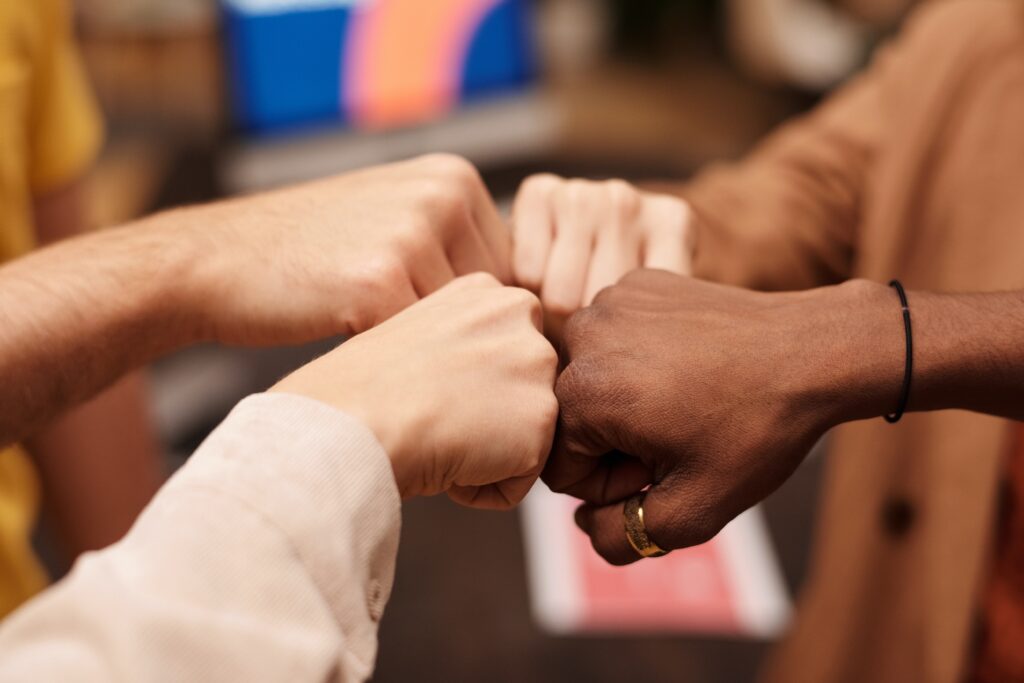While stories of individual heroism dominate our mythology, we need collective efforts of compassion and solidarity to face-down the foes of our time.
“Each entered the Forest Adventurous at the point which he himself had chosen, where it was darkest and there was no way or path”
(Anonymous 13th Century monk, “The Quest Of the Holy Grail”).
So it has been for heroes and heroines of all time. Whether it’s Luke Skywalker setting off to planet Rodia on a coveted adventure, the humble Frodo taking the first steps towards Mount Doom to destroy a ring he never asked to carry, or Pai, the little Maori girl who fights for her right to lead her people, the heroes of film, literature and myth have had to face their challenges mostly on their own. They may have had their trusted companions, but it was always clear it was their journey to take, their battle to fight.
This is an outstanding feature in what the great mythologist Joseph Campbell called “the Hero’s Journey” or “the monomyth”: the one constant script behind humankind’s many quests and travails. This universal pattern of separation, ordeal, and return dates back to our first tribal endeavors: conquering fire, hunting for food, staving off opposing groups, facing threats of all kinds. The heroic model has prevailed throughout history, fueling humanity’s feats, from voyages of discovery to overturning oppressive regimes to breaking new technological ground.
But though there will always be room for individual acts of bravery, one question looms large: does this model suffice to meet the kinds of ills and suffering we struggle with today, which are so complex and multifaceted (and, at least partly, of our own making)? Will we be able to put an end to climate change, racial injustice, social and economic inequality and political polarization through the sheer force of individual will?

It seems that the time has come for a new kind of heroism, and it is precisely what we are already seeing on many challenging fronts. The fight against climate change is not being led by a larger-than-life figure of muscle and brawn, but by a 20-year-old girl whose main weapons are school strikes, and appealing to adults’ sense of moral responsibility.
In a different time and place, the Mothers of Plaza de Mayo alerted the world about the crimes against humanity perpetrated by the Argentine Military regime by walking in circles in the central square, wearing their children’s nappies as headscarves.
In the UK, Rob Hopkins co-founded the Transition Network, a movement of communities coming together to imagine and co-create a more just, beautiful and sustainable world, without leaders or political ambitions.
In the US, civil rights leader Valarie Kaur launched a campaign under the banner of “Revolutionary love”, to counter the wave of hatred against muslim and Sikh families in the aftermath of September 11th. Her motto, and the title of her book -”See no stranger”- are as clear a proclamation as any.
These quests do not fit neatly into Campbell’s map of the solitary hero. Here are some key ways in which they differ:
- They are essentially collective (and often anonymous) efforts, though an individual may pave the way.
- They are inspired by traditionally “feminine” qualities such as empathy, cooperativeness, warm-heartedness and inclusivity.
- They don’t exclusively involve physical risks, but almost alway require social, emotional and spiritual vulnerability.
- They are frequently creative and groundbreaking.
- Their rival is not a person, but rather a system, a problem to be solved, a way of life.
- They are not fueled (solely) by anger or outrage but include and emphasize emotions such as love, kindness, grief, wonder, generosity, forgiveness.
- They have compassion and justice as their center, and their guiding lights.
In the seminal work of Joseph Campbell, the hero’s myth was not simply a ubiquitous tale but, in essence, a metaphor for the inner journey of transformation that’s at the heart of a person’s growth and evolution. The mythologist saw community and kinship as the ultimate endpoint of the journey, as he poetically stated: “Where we had thought to travel outwards / we shall come to the center of our own existence. / And where we had thought to be alone / we shall be with all the world.”
Could it be that, in this historic time, what was once an endpoint is now our new beginning?
If we so choose it, the vision of a united humanity expressed by Black Elk in the last century can be ours to embody, ours to realize. Then we, too, shall say:
“The time of the lone wolf is over (…) Banish the word struggle from your attitude and your vocabulary. All that we do now must be done in a sacred manner and in celebration. We are the ones we have been waiting for!”
Fabiana Fondevila is a writer, speaker, ritual maker, and teacher. She is writing in a personal capacity.
